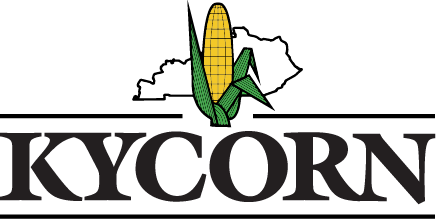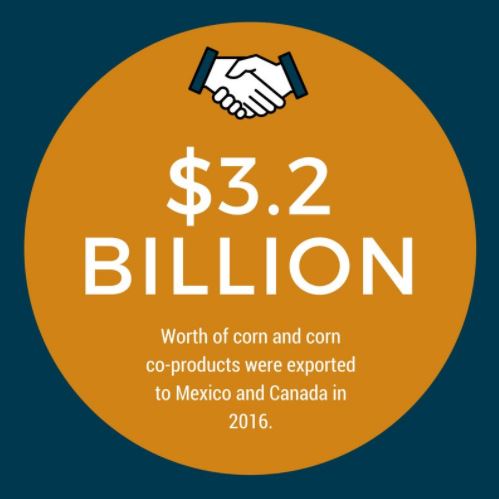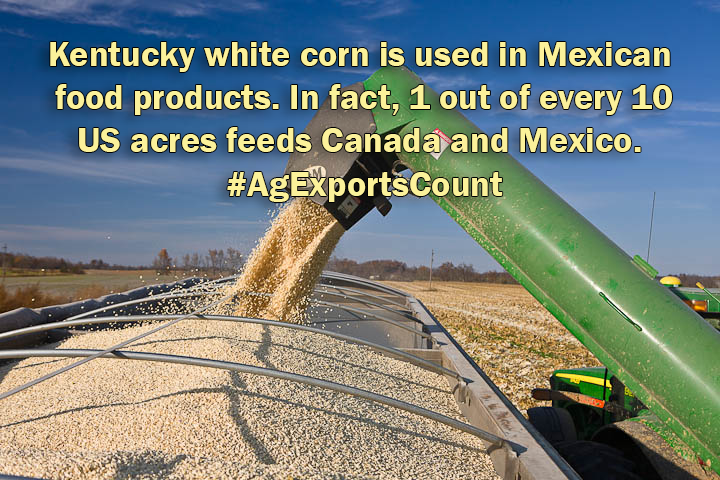Leadership and staff of corn, trade, and commodity groups have focused a tremendous amount of energy this month–May is World Trade Month–telling the administration and public the impact agricultural trade has on the US economy. It could not have come at a better time.
Shortly before the calendar switched over to May, a report came from the White House that wasn’t necessarily in the spirit of the trade appreciation month, as President Donald Trump publicly considered withdrawing from the North American Free Trade Agreement (NAFTA) with Canada and Mexico. We were more than a little surprised.
U.S. Grains Council (USGC) President and CEO Tom Sleight addressed the news and told us what to expect in what will be a crucial year for the corn export market.
“What the administration has [heard] and will hear very loudly and clearly is that [the agriculture sector] does not want to withdraw,” says Sleight.
The USGC along with the National Corn Growers Association quickly made their voices heard after the news broke, emphasizing the importance of our country’s trade relationship with Canada and Mexico, which is the largest importer of American corn.
Now that President Trump has moved to renegotiating the agreement, Sleight says it will be crucial agriculture stays involved in the discussion, as the NAFTA-related concerns due to lost jobs in the manufacturing sector are balanced with concerns from farmers.
Perdue and his team will have some momentum to work with, according to Sleight. Last year was a strong year as the United States outperformed exports from important competing countries in South America, which were hampered by a short growing season. Sleight expects South America to rebound as a competitor in 2017.
In addition, Sleight believes the United States will continue to benefit from emerging markets in countries once not considered a hotbed for American exports. From the Middle East to Southeast Asia, demand in new markets should continue to grow.
New countries embracing ethanol is a potential breakthrough that will also aid growth, Sleight says. The key newcomer in this development is Japan, which is looking at ethanol as a possible contributor to the country’s mission to lower greenhouse gas emissions.
“A breakthrough in Japan would give us a third country verifying corn ethanol as a good product to lower greenhouse gas,” Sleight says. “If they can see the benefits and accept it, that would be huge.”
Canada currently imports a third of US ethanol and recently set an aggressive goal of reducing greenhouse gas emissions by 30 megatons by 2030. U.S. ethanol is a proven and economically viable tool to help achieve that objective. Opening ethanol markets to Mexico is also a priority, along with strengthening corn exports through red meat.
KyCorn works with the U.S. Grains Council works to develop export markets for U.S. corn, ethanol, and distiller’s dried grains with solubles (DDGS). KyCorn Promotion Council Chairman Philip McCoun is a USGC Advisory Team member.
KyCorn is also a member of the US Meat Exports Federation and the US Poultry and Egg Export Council.


